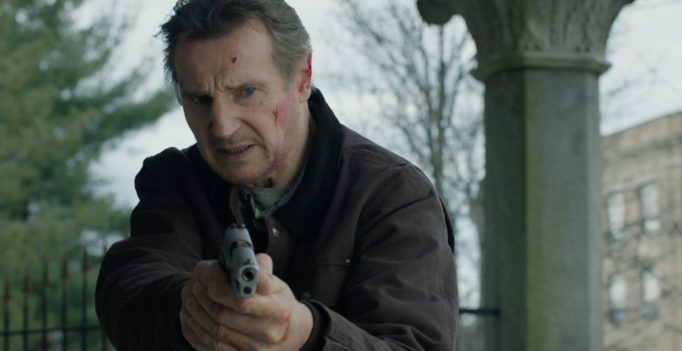Liam Neeson has been playing a variation of the same soft-yet-secretly-badass character since 2008’s Taken, and Mark Williams’ action-thriller Honest Thief is no exception. Neeson treads well-worn ground as Tom, a former marine-turned-bank robber who wants to turn himself in and start a new life with his girlfriend, Annie (Kate Walsh). His attempts to make amends don’t exactly go as planned when the FBI agents sent to take him in decide to keep the money from his robberies for themselves.
Everything about Honest Thief felt familiar, like cinematic déjà-vu. It also felt tired, old, and utterly out of synch with the major cultural shifts that have taken place in and out of Hollywood in recent years. The plot and characters could just as easily have been written in 1990 as 2020. While up-to-the-minute cultural references and engagement can certainly shorten a movie’s shelf-life, Honest Thief feels as though it is committed to recycling action-thriller tropes that are outdated. While never overtly offensive or problematic, there is very little about this film that feels contemporary or relevant.
Honest Thief is a great example of what happens when a film repeats a familiar pattern without offering anything fresh or new and without engaging in broader social questions or critiques – it is forgettable. However, the more I think about Honest Thief’s efforts to be as blandly functional and inoffensive as possible, the more the movie’s insistence on sticking to a tired action-movie formula without rocking the boat feels not just boring, but part of a larger tension between viewer expectation and the passive consumption of potentially harmful ideology.
Honest Thief, like other action films of its kind, is founded on a fantasy in which men are at the center of the narrative and their primary motivation is the physical threat that the antagonist poses to members of the hero’s nuclear family. The worth of men is judged based on their ability to protect, often through violence. In this fantasy, corruption is acknowledged to exist at the macro-level but is not critically examined. Instead, hope for redemption exists in individual authority figures, such as government agents and police, who are working for the side of “good”.
Admittedly, it is comforting to watch a movie and know exactly where it is taking you. The hero will save the day and get the girl. The “good” cops will win out over the bad. However, so much has shifted in our (or at least my own) cultural landscape in the past few years that I can no longer sit back and be passively soothed. The reality is that it is dangerous to sit back and trust that there are good cops. It is dangerous to view women as the possessions of men, objects to be protected with violence. It is also dangerous to imply that the measure of being a “good” and “strong” man is to isolate yourself from your loved ones for their own “protection”. It feels outdated for a film like Honest Thief to ask audiences to sit back and enjoy this fantasy uncritically, particularly when it offers little in the way of spectacle or thrilling plot twists in return.
This problem is bigger than one film, and there are no easy answers. If viewers are looking to escape into a familiar world of family-man action heroes, they could certainly do worse than Honest Thief. Nor do I think that films must reflect reality and engage with social issues in order to be good. Fantasy is wonderful. Escape is wonderful. It’s what draws most of us to film in the first place, isn’t it? But fantasies should not go unexamined. To avoid doing so is, at best, lazy.
While it isn’t enough to save the film from the clutches of mediocrity, Kate Walsh as Neeson’s girlfriend Annie is a refreshing casting choice that makes Honest Thief far more watchable than it deserves to be.
Hollywood still has an obsession with casting young women as the partners of much older men, as exemplified by the conversation stirred up earlier this year by David Fincher’s Mank, a film in which 62 year-old Gary Oldman and 33 year-old Tuppence Middleton were cast to play a couple in their mid-forties. Mank highlighted a double-standard that is pervasive in Hollywood wherein male actors are afforded a variety of opportunities and roles regardless of their age, while female actors often find themselves with dwindling prospects once they reach middle age. It felt like a sigh of relief to see Walsh’s Annie presented as a woman that is smart, capable, desirable, and clearly over the age of forty. That said, she still exists only to motivate the male protagonist and inspire his acts of violence.
Here again, we circle back to the biggest issue that I have with Honest Thief: the tension between creating a pleasing, generic thriller and the problematic ideology that is built into this particular expression of the genre. Mark Williams has created a film that does exactly what it is supposed to do; it makes us root for the hero and it makes us hate the villain, and it is undoubtably well-cast. But it is also boring. We have all seen this film before, many times. We have seen it done worse and, perhaps more importantly, we have seen it done better. Maybe it is time for something new?
**********
Do You Tweet? Follow These Tweeple:
Shannon Page: @ShannonEvePage



Be the first to comment